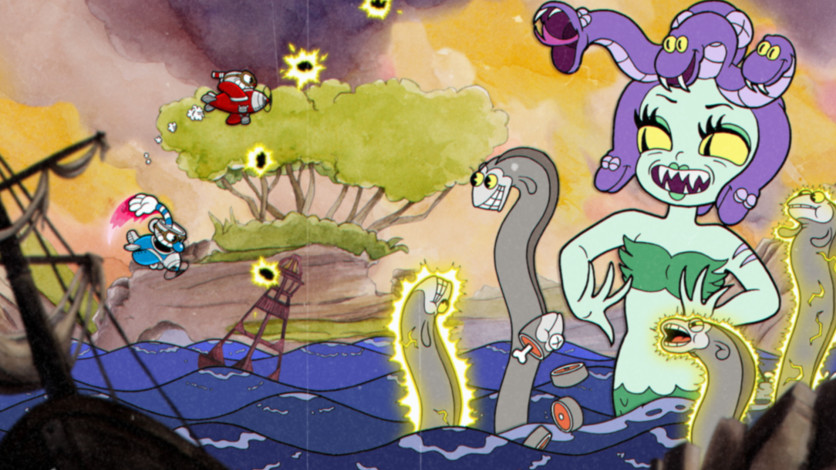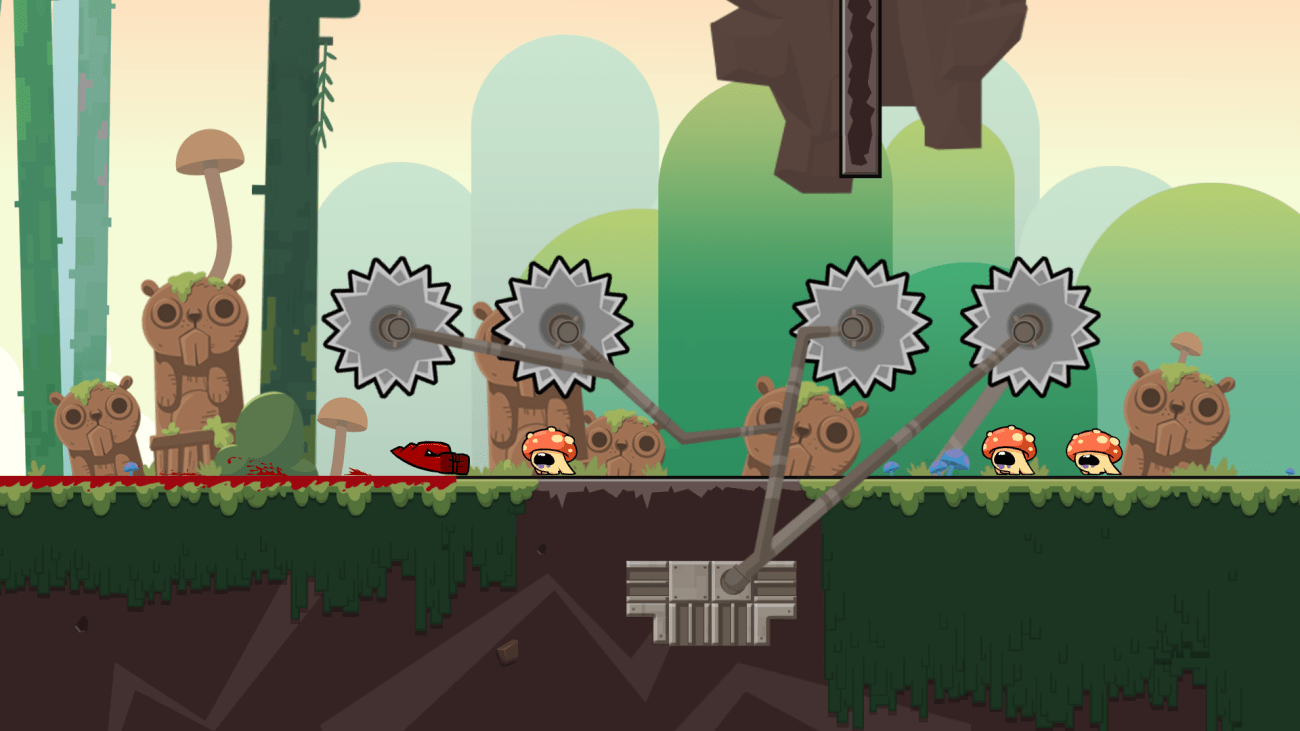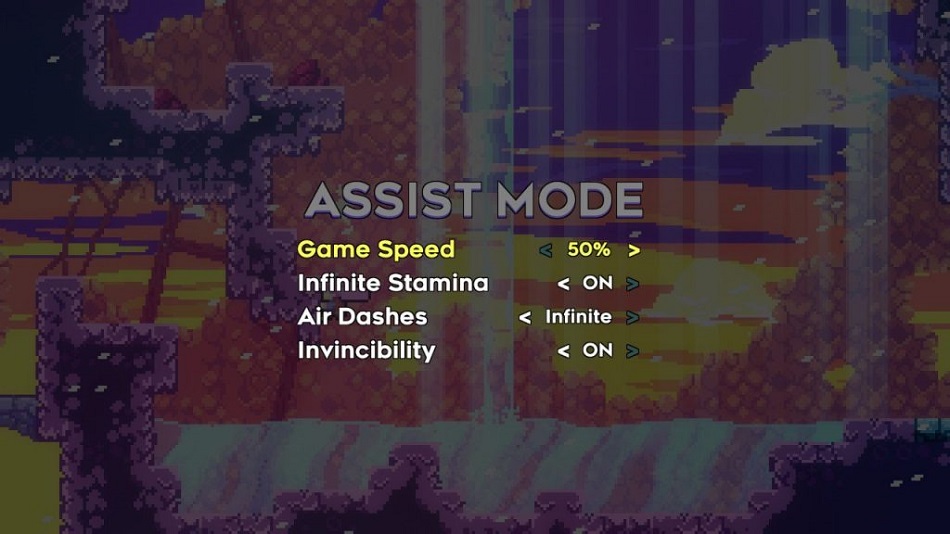Whenever I pick up a new video game to play, there’s always a lot of factors that go into any decision about game difficulty modes. Some games, like the Wolfenstein titles, I deliberately play on easy mode because I want defeating Nazism using bullets and aggression to be a power fantasy, and the easier they go down the more badass I feel. Sometimes the genre of the game impacts my difficulty choice, I know I suck at some first person shooters so I might just play on easy so I can see the story through. Sometimes it just comes down to how much free time I currently have, I might put a game on easy so I can finish it before the next big release I want to check out.
There’s a lot of different reasons for people to pick different difficulty modes in games, but today I wanted to talk about a misconception I frequently see thrown around in discussions of games like Dark Souls, Cuphead, or Super Meat Boy. Let’s talk about the concept that these games would be “ruined” with an optional easy mode, because of each game’s core narrative and gameplay focus on overcoming tough challenges.
So, here’s the basis of the argument; The Dark Souls game series for example is often summarized best as being about carrying on when times get tough. The tone and setting are bleak, death is expected to be frequent, and the value in the game is overcoming a boss so powerful you thought you would never get past it. It’s a game about not giving up when things look their worst, and a number of players out there argue that adding an easy mode would undermine this core gameplay and narrative experience. If nothing in Dark Souls kills you because the game is too easy, is that stripping the player of experiencing aspects of the narrative as the creators intended? Does it split up the fanbase, so some players take different things away from the narrative because they had a different set of challenges placed in front of them?
So, let’s get this out the way, I don’t think anyone who argues for a Dark Souls easy mode is saying that should be the only way to play the game. I think everyone, whether they like Dark Souls difficulty or not, can see that its current difficulty setting brings a lot of valuable gameplay to a lot of players. Don’t worry, we’re not arguing that you should have to play an easy mode. If you’re all worried that saying “I Beat Dark Souls” won’t mean as much if there’s an easy mode, just specify what difficulty you beat it on, your Dark Souls “git gud gamer cred” won’t be impacted.
But, what I want to focus on talking about today is the incorrect idea that creating an optional easy mode in these kinds of games is something players are only pushing for because they don’t want games to challenge them. Quite the opposite, many players want an easy difficulty mode so they can have the same experience you’re already having with Dark Souls, or Cuphead, or Super Meat Boy. They want a challenge that knocks them back over and over, but feels just achievable to push through and achieve, rather than something that feels impossibly above their skill ceiling. They want a challenge that’s tough but achievable for them. Many players, myself included, sometimes want an easy mode that isn’t a total walk in the park.
Maybe part of the issue here is the traditional naming nomenclature we use to discuss difficulty modes, and the way it presents what players want from a game. Easy as a difficulty mode suggests you want an easy time, free of challenge. It suggests the end goal is to take difficulty out of the equation. I don’t want this to be hard.
Would a change to calling easy mode “easier mode” or similar fix this issue? Probably not, but at least semantically it might be closer to what a Dark Souls easy mode player might want. It’s a lowering of the difficulty barrier, but one that still leaves a challenge for the player afterwards.
Other than that, there are games like Celeste or Sayonara Wild Hearts that don’t strictly have an easy mode, but allow players to avoid optional dangerous areas, skip sections that they simply can’t seem to pass, or tweak specific character data momentarily to help themselves get past a section. I’m not embarrassed to admit in Celeste there were a couple of times where I slowed the game speed down by a couple of percentage points just so I would have an easier time getting the timing right on a really difficult section of the mountain. I still had to do the correct inputs, and plan my route correctly, I just had a little extra time to do what my hands couldn’t quite keep up with. It was still difficult, I wasn’t throwing away all challenge by playing it in a slightly easier method than the default setting.
As I said before, there’s a lot of different reasons someone might play an easy mode in a game, but let’s get past this notion that picking an easy mode means someone doesn’t want to experience challenge. Everyone’s skill level is different, and skill levels differ game to game. Choosing to give myself a little extra time in Celeste occassionally doesn’t mean I didn’t challenge myself, and it didn’t take away from my enjoyment of that game’s narrative of overcoming difficult experiences. My playing the game that way didn’t impact anyone else’s play experience, or change my perception of the game’s challenge based narrative.
So, next time someone asks for an easy mode in a game that’s deliberately designed to be tough, just remember that easy mode might still be a challenge for that person, with that type of game. Asking to be challenged a little less, doesn’t mean someone is asking not to be challenged at all.
Categories: Gaming




Recent Comments